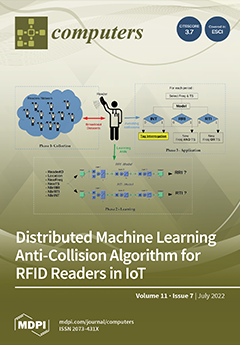Open AccessArticle
Medical-Waste Chain: A Medical Waste Collection, Classification and Treatment Management by Blockchain Technology
by
Hai Trieu Le, Khoi Le Quoc, The Anh Nguyen, Khoa Tran Dang, Hong Khanh Vo, Huong Hoang Luong, Hieu Le Van, Khiem Huynh Gia, Loc Van Cao Phu, Duy Nguyen Truong Quoc, Tran Huyen Nguyen, Ha Xuan Son and Nghia Duong-Trung
Cited by 55 | Viewed by 6403
Abstract
To prevent the spread of the COVID-19 pandemic, 2019 has seen unprecedented demand for medical equipment and supplies. However, the problem of waste treatment has not yet been given due attention, i.e., the traditional waste treatment process is done independently, and it is
[...] Read more.
To prevent the spread of the COVID-19 pandemic, 2019 has seen unprecedented demand for medical equipment and supplies. However, the problem of waste treatment has not yet been given due attention, i.e., the traditional waste treatment process is done independently, and it is not easy to share the necessary information. Especially during the COVID-19 pandemic, the interaction between parties is minimized to limit infections. To evaluate the current system at medical centers, we also refer to the traditional waste treatment processes of four hospitals in Can Tho and Ho Chi Minh cities (Vietnam). Almost all hospitals are handled independently, lacking any interaction between the stakeholders. In this article, we propose a decentralized blockchain-based system for automating waste treatment processes for medical equipment and supplies after usage among the relevant parties, named Medical-Waste Chain. It consists of four components: medical equipment and supplies, waste centers, recycling plants, and sorting factories. Medical-Waste Chain integrates blockchain-based Hyperledger Fabric technology with decentralized storage of medical equipment and supply information, and securely shares related data with stakeholders. We present the system design, along with the interactions among the stakeholders, to ensure the minimization of medical waste generation. We evaluate the performance of the proposed solution using system-wide timing and latency analysis based on the Hyperledger Caliper engine. Our system is developed based on the hybrid-blockchain system, so it is fully scalable for both on-chain and off-chain-based extensions. Moreover, the participants do not need to pay any fees to use and upgrade the system. To encourage future use of Medical-Waste Chain, we also share a proof-of-concept on our Github repository.
Full article
►▼
Show Figures





